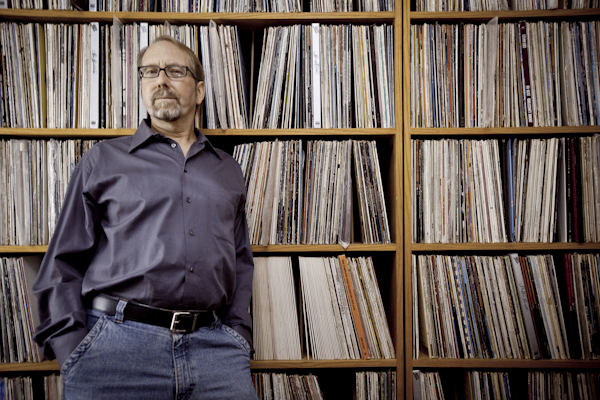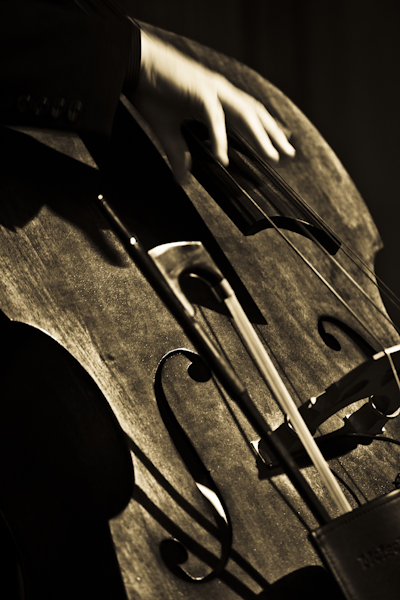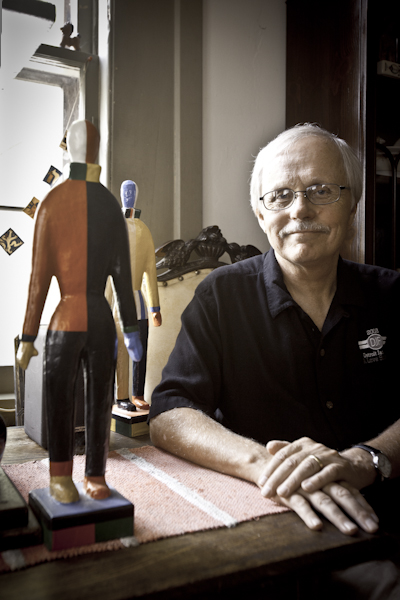Gatekeepers of Detroit Jazz: Lars Bjorn and Jim Gallert talk about festival and the music they love
We whet your appetite for festival weekend with a Q&A with two of the city's leading experts on the historical and current Detroit jazz scenes. Veronica Grandison asks the swinging questions.
There was music in Detroit before Motown, just ask Lars Bjorn and Jim Gallert. The Detroit jazz historians and authors of the book, Before Motown: a History of Jazz in Detroit, have been uncovering the legendary musical legacy of the city for over 30 years, and are the reason why local musicians such as bassist Ray McKinney and pianist Willie Anderson will never be forgotten.
Their passion for hometown swing and bebop has resulted in the two conducting extensive research about jazz in the city and educating others about legends in our own backyard.
Bjorn, who is currently president of the Southeastern Michigan Jazz Association, has published numerous articles about local musicians and was on the board of directors for the Detroit Jazz Center in the 1970s. Gallert, a veteran radio broadcaster, has produced and hosted various jazz radio shows including Jazz Yesterday for WDET and has published national works regarding jazz.
They may not be musicians, but as bearers of this treasured history, the duo stay quite busy, giving lectures and presentations about Detroit jazz.
For over ten years, Bjorn and Gallert have been hosting the Jazz Talk Tent at the annual Detroit Jazz Festival. DJF is one of the top music festivals in the country that attracts people from all over the world to the heart of Detroit to see national and local musical acts. But, while audiences may come to enjoy the swinging sounds of young musicians like Hot Club of Detroit or violinist Regina Carter, Bjorn and Gallert make sure they experience more than just the music.
With the Detroit Jazz Festival only a few days away, Model D sat down with the two to discuss some jazz, past present and future.
Within the last few years, critics have been talking about the death of jazz. Yet, cities are continuously sponsoring jazz festivals to overwhelming popularity, the Detroit Jazz Festival being one of them. What is your take on the death of jazz, is it an overstatement?
Lars: They have talked about the death of jazz since the 1960’s. I think the problem is very simple: it’s getting young people interested in the music, particularly since they are very unlikely to get it through school with music education programs, particularly in the city, being cut. It is harder to appreciate jazz if you do not know what playing an instrument is all about.
And it’s not as much emphasis on the history of the music as well.
Lars: Well that is the other part, Americans tend to ignore history and they do not want to think about the past, they want to think about the future.
Jim: The other problem is that there seems to be so many college programs that provide a good technical knowledge of jazz studies, but the thing is, where are these people going to work, where’s the jobs? Detroit had an amazing musical infrastructure in the 1930s, 1940s and 1950s and various (music programs in) primary and secondary schools in the city, but now a lot of that has been dismantled.
What are some specific qualities that Detroit jazz musicians have that distinguish them from other musicians?
Lars: Detroit is really part of the New York scene in many ways. There are some people that have talked about a few things such as Detroit’s piano style. There are certain types of ways of playing bebop piano that is strictly Detroit. Tommy Flanagan and Barry Harris had a light touch. My favorite way of conceiving it is that their style is very lyrical.
Jim: The other thing that is problematic is that if you look back during the 1950s, many of these jazz musicians migrated from Detroit to New York, and it became harder to come up with a distinctive sound because of the increasing complexity of the music. Because of bebop’s technical demands, it was more difficult to discern different styles.
What were some things that surprised you in getting to know the Detroit jazz musicians that you interviewed?
Lars: In one of the first articles I wrote, I noticed the pride they had. The way I describe it is they had a sense of craftsmanship. The tragedy of it is that many of them were not recognized for it.
Jim: The thing that I remember that impressed me, especially with the older musicians, was their sense of personal dignity and pride. They had a strong, positive belief in what they accomplished and what they had done, that it was important and worthwhile.
Detroit was such an important avenue for jazz during the early to middle part of the 20th century. What are some things that Detroit still has that make it an important avenue for jazz music?
Jim: I’m not completely sure what Detroit still has. The Public School system music department has been systematically dismantled over the last decade and that was a very important component. There are not many venues for younger musicians to play in public and explore the music. But, we still hear talent. The last group of younger talent from Detroit that I recall contained folks like J.D. Allen, Karriem Riggins, Carlos McKinney, Ali Muhammed, Craig Taborn. Maybe it really is something in the water?
Lars: There are still young musicians coming up, even though less in number and there are a few jazz venues, like Cliff Bell’s. Jazz has also spread beyond the city of Detroit; there is a reasonable amount of it in Ann Arbor.
Who are some artists at this year’s DJF that you are looking forward to seeing perform?
Jim: Keith Vreeland’s band (Bad Dog) is really creative. Keith is a survivor from the 60s/70s and his band really sounds good. Vijay Iyer is one of the more interesting pianists around. Joe Lovano has a tenor sound that really grabs me. The base of American music — the brass band — is in very good hands with the Soul Rebels Brass Band.
Lars: Dave Holland’s Octet, Jason Moran and Bandwagon, Joe Lovano Us Five, Paquito D’Rivera, Regina Carter’s Reverse Thread, and Vijay Iyer.
Veronica Grandison is a Detroit-based freelance writer. She interned at Model D earlier this year while attending the University of Michigan-Dearborn.
Photographs by Marvin Shaouni










